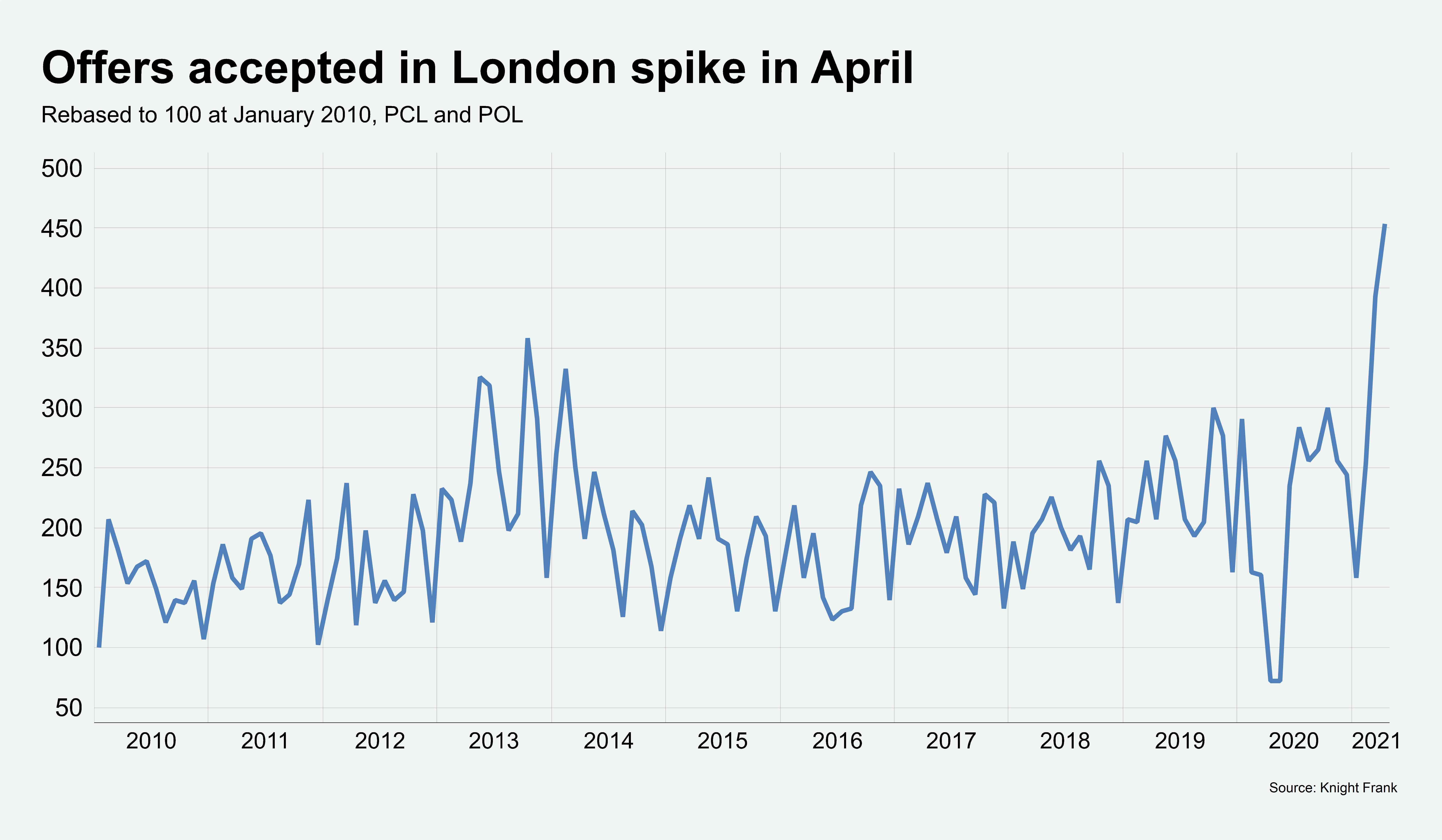Friday property news update - 7 May
The housing market is “on fire”, fastest UK growth since the second world war, and the fight for flights
5 minutes to read
More growth
The Bank of England yesterday raised its annual forecast for economic growth to 7.25%, up from 5% that it was forecasting just three months ago. This will be the strongest year of growth since the second world war and will mean the economy surpasses its pre-pandemic size in the final quarter of this year.
Unemployment will peak at 5.4%, rather than 7.8% as previously predicted. Officials now believe consumers have amassed £200 billion in excess savings, 10% of which they are expected to spend as the economy reopens.
Inflation is expected to rise as a result, though the Monetary Policy Committee is of the view that tax rises and lower public spending will keep it in check. Even so, markets are forecasting the base rate will begin to rise next year, albeit slowly.
Earlier this week, the Bank said net mortgage borrowing hit £11.8bn in March, the strongest since records began in April 1993. Unlike late 2020, when the banks were overwhelmed with applications, the Monetary Policy Report confirms lenders now have increased operational capacity and are increasingly competitive, with product numbers rising and institutions returning to the high LTV market. Knight Frank Finance has more on this.
The everywhere rally, continued....
The Wall Street Journal’s new “It’s on fire – why the housing market is booming” podcast unpicks events in the US. At 2.66%, the US 30-year fixed mortgage rate reached a 50-year low recently. Meanwhile, inventory levels are down 23% year-on-year and sales volumes have hit a 14-year high.
As we highlighted in the latest Prime Global Cities Index - similar surges are evident in China, Russia, the UK, New Zealand, South Korea, Canada and parts of Europe. Talk of multiple offers, offers in excess of the asking price and gazumping is even returning.
In the US there is growing evidence that sellers are reluctant to bring their property to the market given the prospect of further house price gains and limited stock to choose from, which could push prices higher. Working in the other direction, Janet Yellen’s announcement this week that US interest rates may have to rise and President Biden’s potential hikes to Capital Gains Tax could see demand slow and supply increase over the coming months.
Prime London
In prime London, the number of offers accepted in April reached its highest level in a decade, see the chart below.
Demand could be driven higher if international travel restrictions are relaxed as planned later this month, according to Tom Bill. Pent-up international capital is part of the reason we forecast average prices will climb 2% by the end of the year.
Meanwhile, rental declines in the lettings market bottomed out in April. Demand has been curtailed due to international travel restrictions, while supply has been driven higher by the transfer of short-term rental properties onto the long-let market.
However, exceptionally strong demand in the sales market for houses with outdoor space has reduced supply and put upwards pressure on rental values for this type of property. According to David Mumby, "there are some parts of the lettings market in prime central London that are almost bereft of options for tenants, for example houses in Notting Hill and Chelsea."

Holiday homes
Portugal is likely to be added today to a green list of holiday destinations for quarantine-free travel and the Times reports on a rush for flights, with ticket prices surging to £530 for a BA flight from Heathrow to the Algarve in ten days' time.
Analysis from Kate Everett-Allen reveals viewings of Portuguese properties via Knight Frank’s website increased 18% in April compared to the previous month.
Gibraltar, Malta, Israel and Iceland are among countries that will be added to the green list, according to the Times. Caribbean destinations including Antigua and Barbados are not expected to be included, though there is likely to be further loosening of rules after next month's review.
European renting
Structural shifts in both demographics and lifestyles is creating a clamour among investors for purpose built rental homes. Investment across Europe topped €11.4 billion in the first three months of 2021. That's a 23% increase on the same period a year earlier.
Urban populations across the continent are growing and student numbers are rising, yet the supply of appropriate rental housing in many locations remains inadequate, according to research from Oliver Knight. The impact of a pause in construction in the early part of 2020 will have exacerbated supply shortages.
Rising unemployment and jitters about the macroeconomic outlook will keep a lid on rental growth for the time being, but the need for housing across tenures in major European cities is undiminished.
In other news...
In a view from Australia, Ben Burston examines the bond yield spike and lays out its impact for property markets. You can read more news on Asia Pacific property markets in our latest update. Meanwhile in Edinburgh, Chris Druce finds property prices recorded their strongest first-quarter performance in three years.
Elsewhere: no full-time return to the office for over a million, Rob Speyer bets workers will return to the (fancier) office, get ready for the new workplace perks, Google's plan for the future of work, the IMF says there are economic reasons to remove vaccine barriers but Merkel disagrees, the resilience of the US jobs market, the resilience of the UK jobs market, Barratt is bullish, and finally, Biden leans in to plans to tax the rich.